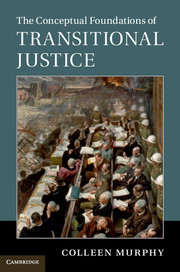(image source: OUP)
Juan Pablo Scarfi (University San Martín) is due to publish The Hidden History of International Law in the Americas: Empire and Legal Networks with OUP.
Book description:
International law has played a crucial role in the construction of imperial projects. Yet within the growing field of studies about the history of international law and empire, scholars have seldom considered this complicit relationship in the Americas. The Hidden History of International Law in the Americas offers the first exploration of the deployment of international law for the legitimization of U.S. ascendancy as an informal empire in Latin America. This book explores the intellectual history of a distinctive idea of American international law in the Americas, focusing principally on the evolution of the American Institute of International Law (AIIL). This organization was created by U.S. and Chilean jurists James Brown Scott and Alejandro Alvarez in Washington D.C. for the construction, development, and codification of international law across the Americas. Juan Pablo Scarfi examines the debates sparked by the AIIL over American international law, intervention and non-intervention, Pan-Americanism, the codification of public and private international law and the nature and scope of the Monroe Doctrine, as well as the international legal thought of Scott, Alvarez, and a number of jurists, diplomats, politicians, and intellectuals from the Americas. Professor Scarfi argues that American international law, as advanced primarily by the AIIL, was driven by a U.S.-led imperial aspiration of civilizing Latin America through the promotion of the international rule of law. By providing a convincing critical account of the legal and historical foundations of the Inter-American System, this book will stimulate debate among international lawyers, IR scholars, political scientists, and intellectual historians.Table of contents:
Introduction: Hemispheric Legal Networks and Languages in the AmericasOn the author:
Abbreviations
Chapter 1: Towards a Pan-American Legal Order: The Rise of US Hemispheric Hegemony and Elihu Root's Visit to South America
Chapter 2: Forging and Consolidating a Hemispheric Legal Network: The Creation of the American Institute of International Law and the Encounter between Scott and Alvarez
Chapter 3: The Pan-American Redefinition of the Monroe Doctrine and the Emerging Language of American International Law
Chapter 4: International Organisation and Hegemony: The Codification of American International Law and the Tensions between Scott and Alvarez
Chapter 5: The Debate over Intervention at Havana and the Crisis of the American Institute of International Law: Scott´s Displacement of Alvarez
Chapter 6: From Pan-Americanism to Multilateral Inter-Americanism: The Impact of the Anti-War Treaty, the Principle of Non-intervention and Sovereign Equality at Montevideo and the Dissolution of the American Institute of International Law
Conclusion: From US Hemispheric to Global Hegemony: Assessing the Legacy of American International Law and the American Institute of International Law in the Americas
Appendix A: Constitution of the American Institute of International Law (1913)
Appendix B: American Institute of International Law, "Declaration of Rights and Duties of Nations" (1915)
Appendix C: Platt Amendment (1901)
Bibliography Index
Juan Pablo Scarfi is a Research Associate at the Argentine National Scientific and Technical Research Council (CONICET), and teaches international relations and international law at the School of Politics and Government at the National University of San Martín, Argentina. He completed his PhD at the University of Cambridge in 2014. He was a Visiting Scholar at University College London (Institute of the Americas) and Columbia University, as well as a Postdoctoral Fellow at the Center for Intellectual History in the National University of Quilmes. He is the author of El imperio de la ley: James Brown Scott y la construcción de un orden jurídico interamericano (2014) and co-editor of Cooperation and Hegemony in US-Latin American Relations: Revisiting the Western Hemisphere Idea (2016).
Source: International Law Reporter. More information with OUP.



